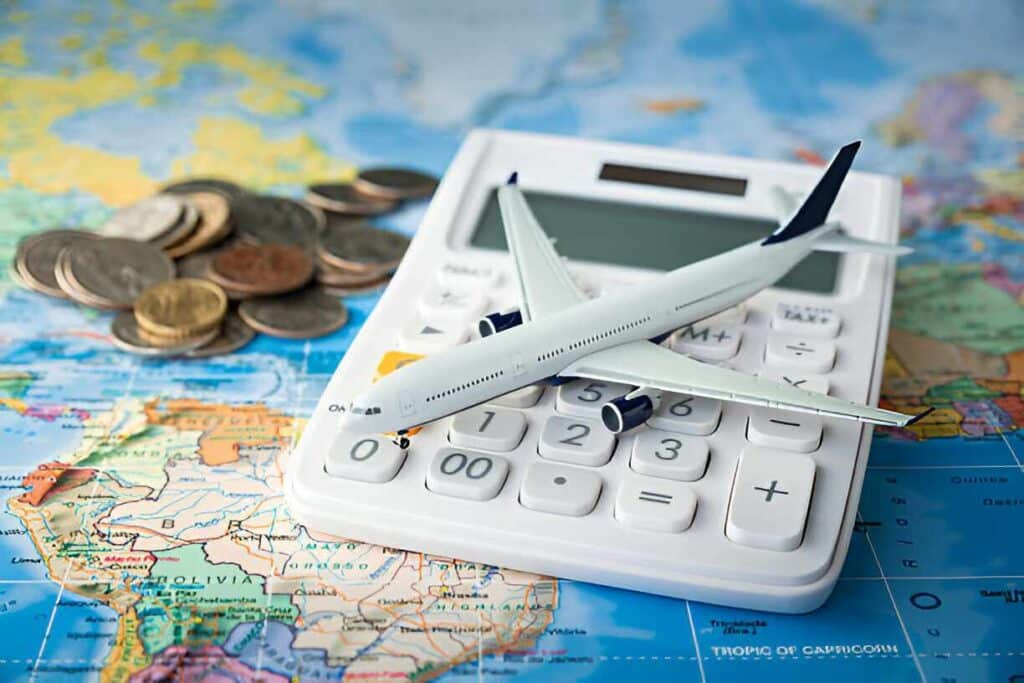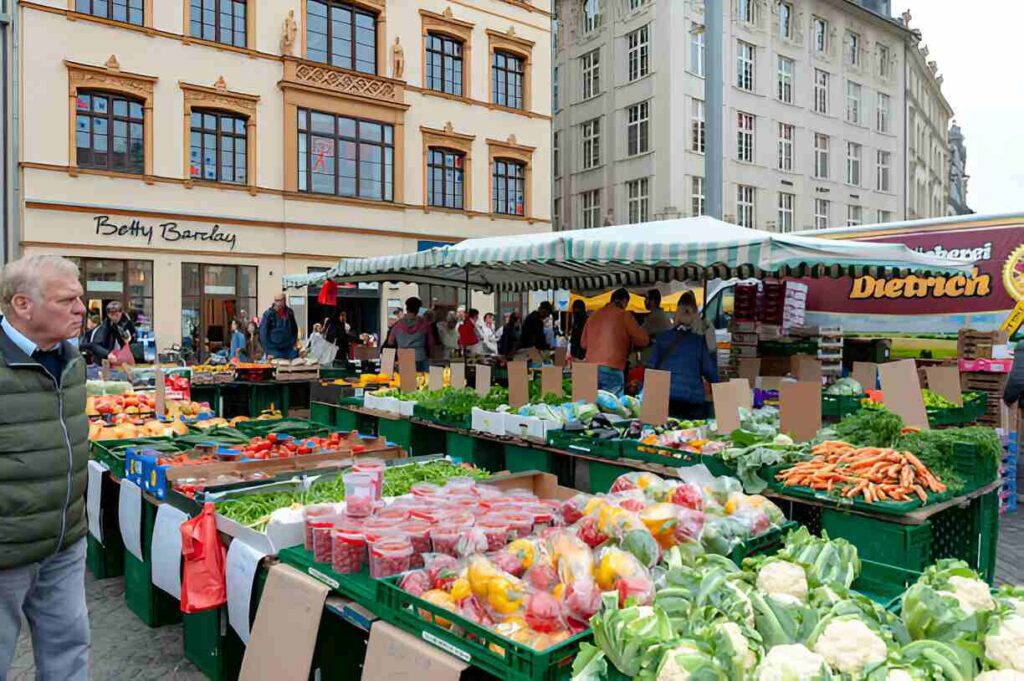Introduction
Globetrotting is in every person’s dreams, keeping the budget travel planning intact seems to urge people to be more thrifty. By using these proper budgetary travel resources and cost-effective traveling apps, you will be able to uncover new destinations without having to use too much money. Here in this guide, we explain frugal vacation organizers, low-cost journey planners, and a few thrifty globetrotter aids. They will help you save money and enjoy your adventures.
Understanding the Basics of Travel Budgeting
Before you start your journey, there are some key things you need to know about budgeting for travel. It will help you estimate your costs. Most importantly, it will ensure a hassle-free journey.
Tally up Your Total Budget
The first step to a successful travel budget is to calculate how much money you can make available for your trip. This will include any and all savings to date, plus any further income which you are expected to earn before the date of your departure. Be honest and true to your financial position; some things may be already almost paid off, and others might be due for an increase.
Here is a simple way to estimate a total travel budget:
Total Travel Budget = Savings + Additional Income — Existing Expenses
You need to also pad or build in some type of contingency fund for the unexpected expenses that will pop up during the trip.
List major costs
Once you have a near-accurate picture of your total budget, it’s time to list the major costs associated with the trip. They essentially include ,
- Airfare or transportation costs
- Accommodation (hotels, hostels, vacation rentals)
- Local transportation trains, buses, cars
Use online travel planning tools/websites and apps like Skyscanner, Booking.com, or Rome2rio to compare prices and get an exact estimate of these costs for your specific travel dates and destinations.
Plan for Daily Expenses
While the major costs are without a doubt easy to point out, it is not worth holding back from planning the everyday expenses which might quickly add up. These could include:
- Food and dining
- Entry fees to various attractions and activities
- Souvenirs and shopping
To avoid overspending, create a daily budget for this. As far as possible stick very close to the budget. Ensure that the budget range from 20% to 30% of your overall budget, depending upon the type of traveling you are doing and where you go.
Have a Back-up Fund

No matter how excellent a planner one is, some unexpected expenses may pop up during travel. Not to be caught off guard, it’s always good to keep a backup fund for emergencies or other exigencies. This covers medical expenses, loss and theft, or even an eleventh-hour change in plans for travel.
Many experts will tell you to put forward at least 5-10% of your total travel budget as part of your emergency fund. It sounds like a lot, but, in fact, you have peace of mind and won’t go in debt or cut your trip short due to unforeseen circumstances.
Track Your Spending
Finally, you have to track your spending for the entire duration of your trip. This, of course, won’t help in keeping you within your budget but will be good for improving estimates when planning future travel. You can make use of a budgeting app, or even a simple spreadsheet, where you would note down expenses as you go.
Here’s an example of how you can track your daily expenses using a spreadsheet:
| Date | Accommodation | Transportation | Food | Activities | Miscellaneous | Total |
| 1/1/2023 | $50 | $10 | $25 | $20 | $5 | $110 |
| 2/1/2023 | $60 | $15 | $30 | $0 | $10 | $115 |
| 3/1/2023 | $0 | $20 | $40 | $30 | $0 | $90 |
By tracking your expenses daily, you can quickly identify areas where you may be overspending and make adjustments accordingly.
New Budgeting Tools: Applications and Websites
The cyber world is flooded with wallet-friendly travel buddies in the form of applications and websites. These can turn out to be very useful in planning out an effective travel budget for you.
Budgeting Applications
- Mint: This is one of the most well-known budgeting apps out there, and can connect with your bank accounts. It syncs your spending data into categories automatically, thus allowing you to monitor your spending on the go. Additionally, it enables you to track your spending trends and set budgeting goals.
- You Need a Budget (YNAB) is intensive budgeting software. It lets you allocate every dollar earned to specific categories. This way, you know you’re on track with your travel budget. It’s derived from zero-based budgeting, which simply means every dollar is assigned to a job.
- PocketGuard links to your bank accounts and credit cards. It traces where your money is going in real time. FRINGE finds areas to cut back and save money. It also gives a “In My Pocket” feature, which shows how much money you have left to spend after accounting for the payment of your bills and other budgeted expenses.
Travel Websites
- Skyscanner is great for staying within budget. It lets you compare flight costs between airlines and days. Use it to find the cheapest fares from your location. You can track down the destinations using its “Everywhere” search option.
- Booking.com has accommodations at great prices. It has large inventories of cheap hotels, hostels, and vacation rentals. You could filter your search results on your budget, location, or amenities.
- Rome2rio is a web tool. It helps plan trips by showing the cheapest, best way to get between places. It also allows comparison between different modes of transport such as flights, trains, buses, and even car-sharing. Such services are very useful while planning multi-city journeys or complicated routes.
Expense Trackers
- Expensify is an energy-packed, on-the-go expense-tracker designed for business travelers, especially to capture and then organize receipts easily for staying atop travel expenses. Integrates with top accounting software to make expensing easy.
- Splitwise is the best travel companion. It keeps track of shared expenses. So, no one needs to worry about paying a little more or less than their share. It’ll digest most scenarios—at times, really complex ones—of splitting costs unevenly or settling up with people at once.
Currency Converters
- XE Currency: This application will help you with prevailing exchange rates for different currencies. It generally makes it much easier to handle one’s money while abroad. This one also allows storing of recent rates for use when not connected to the internet—quite helpful in many places.
- Aside from that, OANDA features a clean Currency Converter widget with historical exchange rates useful for budgeting and planning, tracking tools for currency trends, and setting rate alerts.
Practical Tips and Strategies to Save Money

Budgeting tools and apps can help one save money. But there are also many tips for saving while on the go.
Be Flexible with Dates of Travel
One easy way to save on flights and accommodations is by being flexible with your dates of travel. Off-peak seasons or traveling during the week can make a huge difference in savings.
For instance, Expedia reports that travelers can save up to 25% on airfare. They can do this by traveling on Tuesdays or Wednesdays instead of Fridays or Sundays. Similarly, the rate of a hotel can be up to 30 percent more affordable off-season compared with peak travel periods.
Seek Out Free Activities
Many places offer a lot of free or very cheap activities. These include public parks, free museum days, and walking tours through the neighborhood. Look for opportunities where you can be local without spending money.
Some examples of free activities in popular destinations include:
- Free walking tours, for example, Sandemans New Europe in European cities.
- National parks and hiking trails: Yosemite National Park, USA; Cinque Terre, Italy.
- Admission is free on some days at major museums and attractions. These include the Smithsonian museums in Washington D.C. and the British Museum in London. Free beaches and parks include Bondi Beach in Sydney, Central Park in New York City. Eat Like a Local.
- It won’t be long before most of your holiday budget is spent on dinner if you stick to places that cater to tourists. Instead, seek out local restaurants, street or food stalls, or consider stocking up with a few groceries and preparing your meals—for a truly local dining experience on a really local budget.
How to eat like a local:
Courses in touristy restaurants add up fast. Look to eat in local restaurants, or at street food stalls; better still, buy groceries and cook for yourself. You’ll save even more money, and get a better sense of the culture.
Here are ways to eat like a local:
- Seek a local’s advice about the best cheap places to eat, or the best street food stalls.
- Be wary of places chalk-full of locals; it is usually indicative of good local food, which more often than not comes at good prices.
- Try the local markets/grocery stores to buy ingredients and have simple meals/picnics.
- Consider accommodation with cooking facilities to make it easier to cook up your meal.
Use Public Transport
Taxis or rentals could prove a bit too costly, especially in the bigger cities. Try to use public transport—buses, trains, or even Uber/Lyft services. Many towns have special cards or passes for tourists that give them travel at cheaper rates, which save much money and time.
Shown below are a few of the more pocket-friendly modes of public transports for the popular places to visit:
- London’s Underground Tube and travel by Oyster card
- New York City Subway and MetroCard
- Tokyo Metro and Suica/Pasmo cards
- Paris Métro and Navigo pass
- Berlin public transportation system and Berlin Welcome Card
Stay in Budget-Friendly Accommodations
Luxury hotels can be lovely, but they put a crimp in your travel budget. Throw in hostels, guesthouses, or vacation rentals instead. They usually cost way less, and are very authentic and cool.
Here are some strategies to find budget-friendly places to stay:
- Compare prices and read reviews on websites like Hostel world, Booking.com, or Airbnb.
- Look for shared facilities. These may include shared bathrooms or kitchens. They come with low prices.
- Keep in mind that places a little bit off the beaten track can be cheaper than places right in the heart of the action.
- Book ahead of time or search for last-minute deals. Prices tend to vary depending on availability.
Take advantage of discounts.
Always look out for discounts and special offers. Most of the time, attractions, restaurants, and transportation services offer discounts. These are for students, the elderly, and groups. You might want to buy city passes or tourist cards. They give you a bundled discount for popular attractions and activities.
Some examples are:
- Student discounts—A discount given to students upon showing the ISIC student card or a valid student ID.
- Senior discounts—many are available to travelers 60 or 65 and older
- City passes, including London Pass, Paris Pass, and Berlin Welcome Card
- Attraction bundles or combo tickets, such as CityPASS and Go City Explorer Pass
- Loyalty programs and credit card rewards, such as a hotel’s loyalty programs or airline miles
Light travels
Excess baggage fees skyrocket, mainly if you’re taking more than one or two flights or modes of transportation. Always attempt to journey light and not check your bags, if possible. Of course, this will be not just cheaper but more handy and less of a problem concerning your journey.
Here are some easy ways for traveling light;
- Use packing cubes or compression bags to maximize space in your carry-on luggage.
- Choose versatile clothes. You can mix and match them to make many outfits.
- Bring only what’s necessary, planning to wash clothes during your trip.
- Drag along a lightweight, rugged carry-on that will fit most airline size restrictions.
Book in Advance
While last-minute deals sometimes do occur, you have the opportunity to really save when you plan your travels in advance. Relating to airline tickets and accommodations, prices will skyrocket the closer that date gets.
According to a CheapAir.com study, the estimated best time to book domestic flights is 3 weeks to 4 months prior to your date of travel. For flying intercontinentally, this falls between 2 to 8 months in advance.
Keep in mind, however, that these are general rules of thumb, and the right time to book depends upon where you’re headed, when, and by whom.
Budgeting techniques can be adapted to different kinds of travelers.

Find below how one can apply budgeting techniques for different trips.
Luxury Travel
If you’re traveling in style, then you might be looking mostly at five-star stays, dinners in class restaurants, and extremely exclusive activities. For saving your money, you should consider:
- Booking packages or going in the off-season to get reduced rates.
- Allocating a larger portion of your budget to a few highlight experiences, rather than spreading it too thin across multiple activities
- Keeping an eye out for luxury travel deals and other related promotions from travel companies or credit card rewards programs.
- Redeeming flights, hotels, or upgrades with loyalty programs or credit card points.
Adventure travel
For adventure-seekers, the essential expenses may providence for gear rentals, guided tours, and outdoor activities. Here’s how you can save:
- Hire the gear instead of buying if you are going to do an activity that uses such special gear you will unlikely use again.
- If possible, look out for group discounts on the guide tours and activities. Most of the time, it is a much better way of saving compared to booking alone.
- Camp or opt for budget accommodation to balance out the costs of adventure activities.
- Look for free or really cheap outdoor activities as a good way to attain some adventure without blowing the budget.
Budget Travel
If you’re backpacking or on a shoestring budget, you spend much of your time seeking clever ways to find cheap places to stay. You also look for low-cost food and free or cheap activities. Here are some tips that include the following:
- You can stay in hostels or budget hotels. You can also search for couchsurfing or house-sitting opportunities.
- Seeking out local street-food vendors, or preparing simple meals for yourself.
- Looking for free attractions, like public parks, free entrée days to some museums, or self-guided walking tours.
- Slowing down the pace of traveling and giving more time to a single destination allows saving on transport costs.
Family Travel
The family travel can be tricky, as you are involving many people in your trip, and thus you may need more money for accommodations and activities. Here are some cost-saving ideas for families:
Seek self-catering accommodation to help you save on dining expenses by preparing your food.
Look out for family discounts. Most destinations offer special prices for attractions, transport, and accommodations.
Consider buying city passes or tourist cards. They include bundle discounts for popular family-friendly activities.
It can balance budget and fun for everyone. It does this by planning both free and paid activities.
Solo Travel
Most solo travelers enjoy the advantage of flexibility. It helps them to sometimes get a better deal. Here are some tips on the same:
- Stay in hostels and budget hotels instead of regular ones.
- Ride-sharing services such as Uber or Lyft may be inexpensive compared to hiring taxis or renting cars.
- This way, you will avoid solo supplement fees. You can do this by joining group tours and other activities designed for solo travelers.
- Researching house-sitting or volunteer options can get you free accommodation or a reduced fee. You get them in exchange for services.
To be sure you have enough money to live well while traveling, and to enjoy your top experiences, adjust your budgeting techniques to fit your travel style.
Conclusion
Traveling is not a millionaire’s dream. With the right budget travel resources, frugal travel is possible. You can use money-saving travel apps and organizers to share cheap vacations. They will let you sail, drive, or fly to new places without emptying your wallet. By using the ideas and tips documented in this guide, you will be well on your way to becoming a thrifty globetrotter, traveling, making memories, and keeping your pockets healthy.
Developing a travel budget requires two things. You need forward and flexible planning. Also, you need a set of wallet-friendly companions. These include apps, websites, and real-life money-saving strategies. So what’s holding you back? Begin thinking about your next economical adventure right now and set off on a journey that’s going to enrich your life without emptying your wallet in the process.
